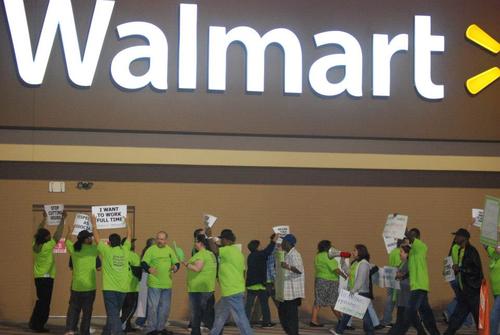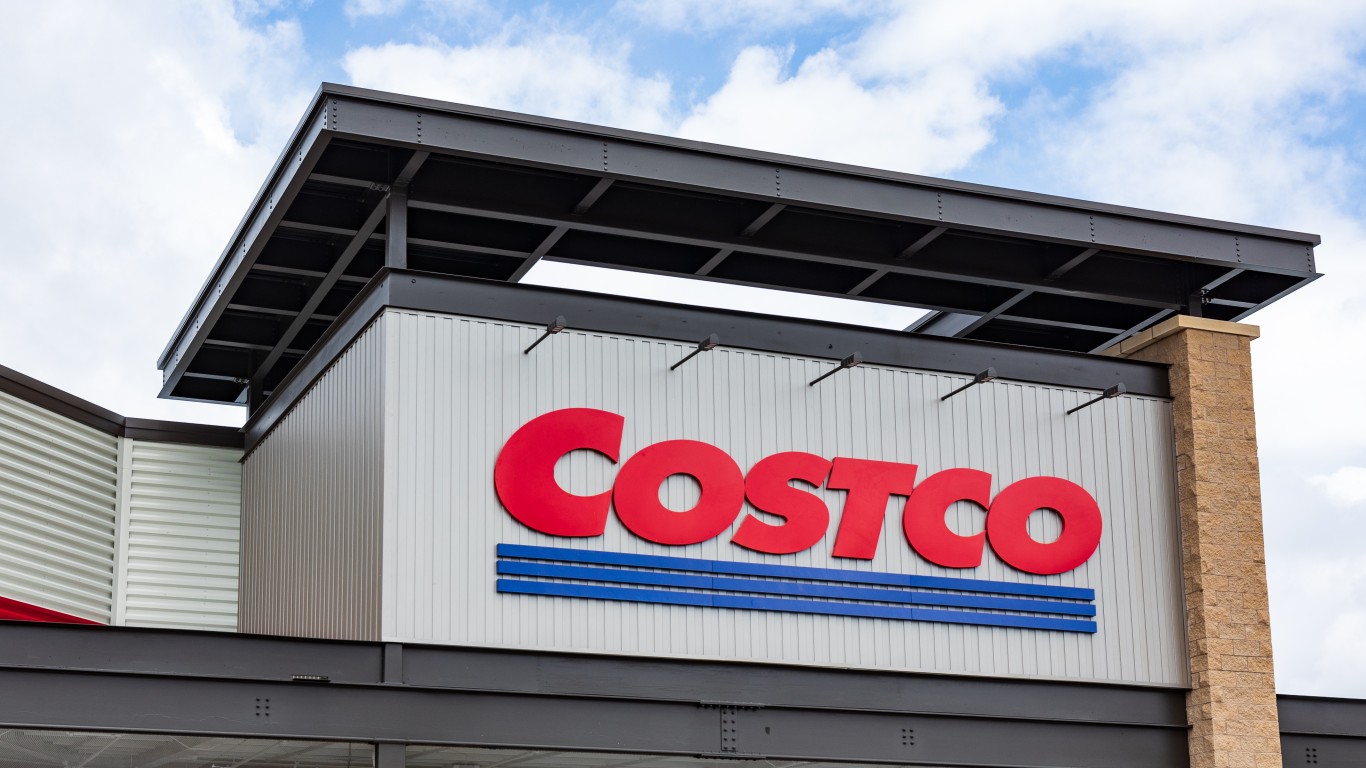Wal-Mart Stores Inc. (NYSE: WMT) recently held what it called its “Walmart U.S. Manufacturing Summit.” One of the purposes of the meeting was to promote new initiatives to build more of its products in America, thereby helping gross domestic product and employment. On paper this should hurt the fortunes of Walmart’s suppliers in China and probably Mexico. Actually these companies have little to fret about. The Walmart plan to help the U.S. economy barely qualifies as a small step.
Consider the promise the world’s largest retailer made at the event:
Walmart’s commitment to buy an additional $50 billion in U.S.-made products over the next 10 years and featured announcements from suppliers that, combined, are expected to infuse more than $70 million into factory growth and create more than 1,000 domestic jobs.
The creation of 1,000 domestic jobs comes while 11.5 million Americans are unemployed and 4.2 million have been out of work for 27 weeks or longer, which qualifies them to fall into the “long-term unemployed” category.
Somehow, Walmart got U.S. Secretary of Commerce Penny Pritzker and General Electric Co. (NYSE: GE) Chairman and CEO Jeff Immelt to show up at the event. The Commerce Secretary can show up at the opening of an envelope. Commerce has not been a top-tier cabinet position for decades. And Immelt has been a net exporter of jobs, a criticism that he faced when President Obama made him the chairman of the Council on Jobs and Competitiveness. It has been widely suggested that Immelt concentrate on troubles at GE and not waste his efforts elsewhere.
Taken as a whole, both the summit and its claims are bogus. That means Walmart’s overseas suppliers have nothing to fear. The claims from the summit make the gathering barely worth having:
“Jump-starting the manufacturing industry and rebuilding the middle class requires a national effort by companies, industry leaders, lawmakers and others,” said Bill Simon, president and CEO of Walmart U.S. “Together, we can help spark a revitalization of U.S.-based manufacturing, using new technology and new innovations to make production in the United States affordable and feasible.”
A much better case can be made that Walmart’s actions have not been good for U.S. employment, and as a matter for fact have undermined it. Reuters reported in an article late last year:
Its China ties have also drawn scrutiny. Wal-Mart was among the pioneers in buying from China after it joined the World Trade Organisation in 2001, which helped drive down prices in Wal-Mart’s stores but added to the U.S. trade deficit and left the company open to complaints that it was hurting U.S. jobs.
Wal-Mart said as recently as 2008 that it directly exported about $9 billion a year out of China, and third-party suppliers shipped another $9 billion, although it no longer provides that information on its website.
The company’s 10-year plan to “infuse more than $70 million into factory growth and create more than 1,000 domestic jobs” is an insult to anyone who might suppose that Walmart has an interest in helping American manufacturing.
Get Ready To Retire (Sponsored)
Start by taking a quick retirement quiz from SmartAsset that will match you with up to 3 financial advisors that serve your area and beyond in 5 minutes, or less.
Each advisor has been vetted by SmartAsset and is held to a fiduciary standard to act in your best interests.
Here’s how it works:
1. Answer SmartAsset advisor match quiz
2. Review your pre-screened matches at your leisure. Check out the advisors’ profiles.
3. Speak with advisors at no cost to you. Have an introductory call on the phone or introduction in person and choose whom to work with in the future
Thank you for reading! Have some feedback for us?
Contact the 24/7 Wall St. editorial team.




